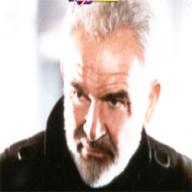The new syllabus suggests a lot of interesting ways to learn, but many forget that learning itself can be fun. The key to allowing students to enjoy learning is to give them more freedom by setting fewer boundaries and restrictions on their dramatic experience.
為何 The key to後面可以加ing呢?
英文句子語法問題
2014-06-12 12:43 am
回答 (5)
2014-06-12 1:03 am
✔ 最佳答案
這是因為 allowing 是一個作為 "noun clause" 的 participle 般用,而非一般的 verb,故此不需要寫成 bare infinitive。情况跟 the key to success 差不多,success 是個 noun,而 participle 就將 allow students to enjoy learning 這不能當成 noun 的動作變成 noun phrase,即 allowing students to enjoy learning,直接用在 the key to 後。
事實上 learning 也是 participle 喔,learn (verb) -> learning (noun)
2014-06-16 6:13 pm
The new syllabus suggests a lot of interesting ways to learn, but many forget that learning itself can be fun. The key to allowing students to enjoy learning is to give them more freedom by setting fewer boundaries and restrictions on their dramatic experience.
My answer to your question is "The key to allowing students to enjoy learning" which is the phrasal subject, and "is" being its predicate, moreover "to give them more freedom by setting fewer boundaries and restrictions on their dramatic experience." being its adjectival phrase. I hope that would explain clearly about your questioning.
My answer to your question is "The key to allowing students to enjoy learning" which is the phrasal subject, and "is" being its predicate, moreover "to give them more freedom by setting fewer boundaries and restrictions on their dramatic experience." being its adjectival phrase. I hope that would explain clearly about your questioning.
參考: Myself
2014-06-12 5:04 pm
The word 'to' can be used as a preposition, an adverb or a particle that together with a verb forms a 'to-infintive'.
When it is a preposition, it should be followed by a noun, a noun phrase, a noun clause or a gerund.
The word 'to' in 'The key to' is a preposition. We use the word 'to' to bring out the goal that we want to achieve. Since it is a goal, it should be a noun.
Sometimes when we dont know whether the word 'to' in a sentence is a preposition or a particle, we can look at how the phrase is used in other sentences. As answer '001' has rightly pointed out, 'the key to sucess' is a good example. From the phrase 'the key to sucess', we know that the 'to' there is a preposition because the word 'sucess' is a noun.
'Allowing' is the gerund form of the verb 'allow'. Gerunds only function as nouns while participles only function as adlectives/adverbs. An Infinitive can be used as a noun, an adjective or an adverb.
I have uploaded a video 'Gerund and Participle" on Youtube. I hope you will find it useful.
https://www.youtube.com/watch?v=QuJCaiySNU0
2014-06-12 18:33:36 補充:
I agree with Godfrey. We should avoid making grammatical mistakes in our answers. In some of the answers in Yahoo Knowledge, there are many grammatical mistakes. Some students may not realize that and learn from them. As a result, they will follow suit and make the same mistakes themselves.
2014-06-12 18:43:51 補充:
Having said that, I must admit that 石破天驚 is one of the responsible ones. He has made a few mistakes. So do we! Let us joint hands to make this forum a success.
When it is a preposition, it should be followed by a noun, a noun phrase, a noun clause or a gerund.
The word 'to' in 'The key to' is a preposition. We use the word 'to' to bring out the goal that we want to achieve. Since it is a goal, it should be a noun.
Sometimes when we dont know whether the word 'to' in a sentence is a preposition or a particle, we can look at how the phrase is used in other sentences. As answer '001' has rightly pointed out, 'the key to sucess' is a good example. From the phrase 'the key to sucess', we know that the 'to' there is a preposition because the word 'sucess' is a noun.
'Allowing' is the gerund form of the verb 'allow'. Gerunds only function as nouns while participles only function as adlectives/adverbs. An Infinitive can be used as a noun, an adjective or an adverb.
I have uploaded a video 'Gerund and Participle" on Youtube. I hope you will find it useful.
https://www.youtube.com/watch?v=QuJCaiySNU0
2014-06-12 18:33:36 補充:
I agree with Godfrey. We should avoid making grammatical mistakes in our answers. In some of the answers in Yahoo Knowledge, there are many grammatical mistakes. Some students may not realize that and learn from them. As a result, they will follow suit and make the same mistakes themselves.
2014-06-12 18:43:51 補充:
Having said that, I must admit that 石破天驚 is one of the responsible ones. He has made a few mistakes. So do we! Let us joint hands to make this forum a success.
2014-06-12 3:54 pm
~ enjoy learning.
說 learning 是 gerund ~ acceptable
learning 在字典上, 分開列為 noun, 直接說 learning 是 noun 可不可以?
learning (uncountable noun) = the process of gaining knowledge and experience, for example by studying
learning (uncountable noun) = knowledge that someone has gained
2014-06-12 08:00:36 補充:
石破天驚
No offence
"key to" something, where something could a noun, noun phrase, or gerund phrase.
could 後面漏了 be, 單是 could 字, 不能做 linking verb
2014-06-12 10:23:57 補充:
石破天驚:
你是用 "no offence" , 我是 in return 用 "no offence"
最怕冒犯人, 你明白最好.
Sorry. You did it again. 你 overwork 了.
but it don't possess the property of a "verbal"
2014-06-12 10:52:20 補充:
石破天驚 :
你解釋 gerund phrase 很清楚, 大家得益不少
Thanks for the contribution.
說 learning 是 gerund ~ acceptable
learning 在字典上, 分開列為 noun, 直接說 learning 是 noun 可不可以?
learning (uncountable noun) = the process of gaining knowledge and experience, for example by studying
learning (uncountable noun) = knowledge that someone has gained
2014-06-12 08:00:36 補充:
石破天驚
No offence
"key to" something, where something could a noun, noun phrase, or gerund phrase.
could 後面漏了 be, 單是 could 字, 不能做 linking verb
2014-06-12 10:23:57 補充:
石破天驚:
你是用 "no offence" , 我是 in return 用 "no offence"
最怕冒犯人, 你明白最好.
Sorry. You did it again. 你 overwork 了.
but it don't possess the property of a "verbal"
2014-06-12 10:52:20 補充:
石破天驚 :
你解釋 gerund phrase 很清楚, 大家得益不少
Thanks for the contribution.
2014-06-12 8:37 am
As a supplement to the answer of "七瀨 遙" which is only partially correct:
He said: "learning" is also a "participle" 分詞, but in fact, "learning" as in "enjoy learning" is called "gerund" 動名詞, which acts as if a noun.
The verb "enjoy" is a transitive verb 及物動詞 which has to be followed by an object. "learning" is the object of the verb "enjoy".
回答你的問題:
"key" when it means "關鍵" has to be followed by a preposition "to". This is an idiomatic way of expressing English which cannot be changed.
The collocation 搭配 is:
"key to" something, where something could a noun, noun phrase, or gerund phrase.
"allowing students to enjoy learning" is a gerund phrase, and "allowing" is a gerund derived from the verb "allow". You can also view this phrase as the object of the preposition "to".
2014-06-12 00:53:46 補充:
It is the basics of non-finite verb (or verbal) that it has three distinct forms : (1) infinitives 不定式, (2) participles 分詞, and (3) gerunds 動名詞.
Infinitives can act as noun, adjective and adverb.
Participles mostly act as adjective.
Gerunds only act as noun.
2014-06-12 01:08:07 補充:
Perhaps 網友 "Raymond" should give his answer by inviting us to view his lesson posted in YouTube which I found very informative.
2014-06-12 08:54:51 補充:
Thank you for your scanning, Godfrey. I knew the typo right after I posted it. Just don't want to waste the resource to correct such an obvious error. Hope you'll do it wisely as well.
2014-06-12 09:03:39 補充:
One more comment for you, my dear Godfrey. Please drop the word "no offence" when you really mean it. Readers will judge it by reading your comments. It doesn't add anything to your sincerity and motive.
2014-06-12 09:35:11 補充:
You have a good point, Godfrey.
For example, "building" is also a noun, in addition to gerund and participle, derived from the verb "build", but it don't possess the property of a "verbal". That means, you cannot, among other things, modify it by an adverb.
2014-06-12 09:38:10 補充:
The key to allowing students to enjoy learning freely... Does this clause make sense? If yes, it's a gerund, otherwise it's not, like the "learning" in "computer-assisted learning".
He said: "learning" is also a "participle" 分詞, but in fact, "learning" as in "enjoy learning" is called "gerund" 動名詞, which acts as if a noun.
The verb "enjoy" is a transitive verb 及物動詞 which has to be followed by an object. "learning" is the object of the verb "enjoy".
回答你的問題:
"key" when it means "關鍵" has to be followed by a preposition "to". This is an idiomatic way of expressing English which cannot be changed.
The collocation 搭配 is:
"key to" something, where something could a noun, noun phrase, or gerund phrase.
"allowing students to enjoy learning" is a gerund phrase, and "allowing" is a gerund derived from the verb "allow". You can also view this phrase as the object of the preposition "to".
2014-06-12 00:53:46 補充:
It is the basics of non-finite verb (or verbal) that it has three distinct forms : (1) infinitives 不定式, (2) participles 分詞, and (3) gerunds 動名詞.
Infinitives can act as noun, adjective and adverb.
Participles mostly act as adjective.
Gerunds only act as noun.
2014-06-12 01:08:07 補充:
Perhaps 網友 "Raymond" should give his answer by inviting us to view his lesson posted in YouTube which I found very informative.
2014-06-12 08:54:51 補充:
Thank you for your scanning, Godfrey. I knew the typo right after I posted it. Just don't want to waste the resource to correct such an obvious error. Hope you'll do it wisely as well.
2014-06-12 09:03:39 補充:
One more comment for you, my dear Godfrey. Please drop the word "no offence" when you really mean it. Readers will judge it by reading your comments. It doesn't add anything to your sincerity and motive.
2014-06-12 09:35:11 補充:
You have a good point, Godfrey.
For example, "building" is also a noun, in addition to gerund and participle, derived from the verb "build", but it don't possess the property of a "verbal". That means, you cannot, among other things, modify it by an adverb.
2014-06-12 09:38:10 補充:
The key to allowing students to enjoy learning freely... Does this clause make sense? If yes, it's a gerund, otherwise it's not, like the "learning" in "computer-assisted learning".
收錄日期: 2021-04-11 20:46:11
原文連結 [永久失效]:
https://hk.answers.yahoo.com/question/index?qid=20140611000051KK00097


